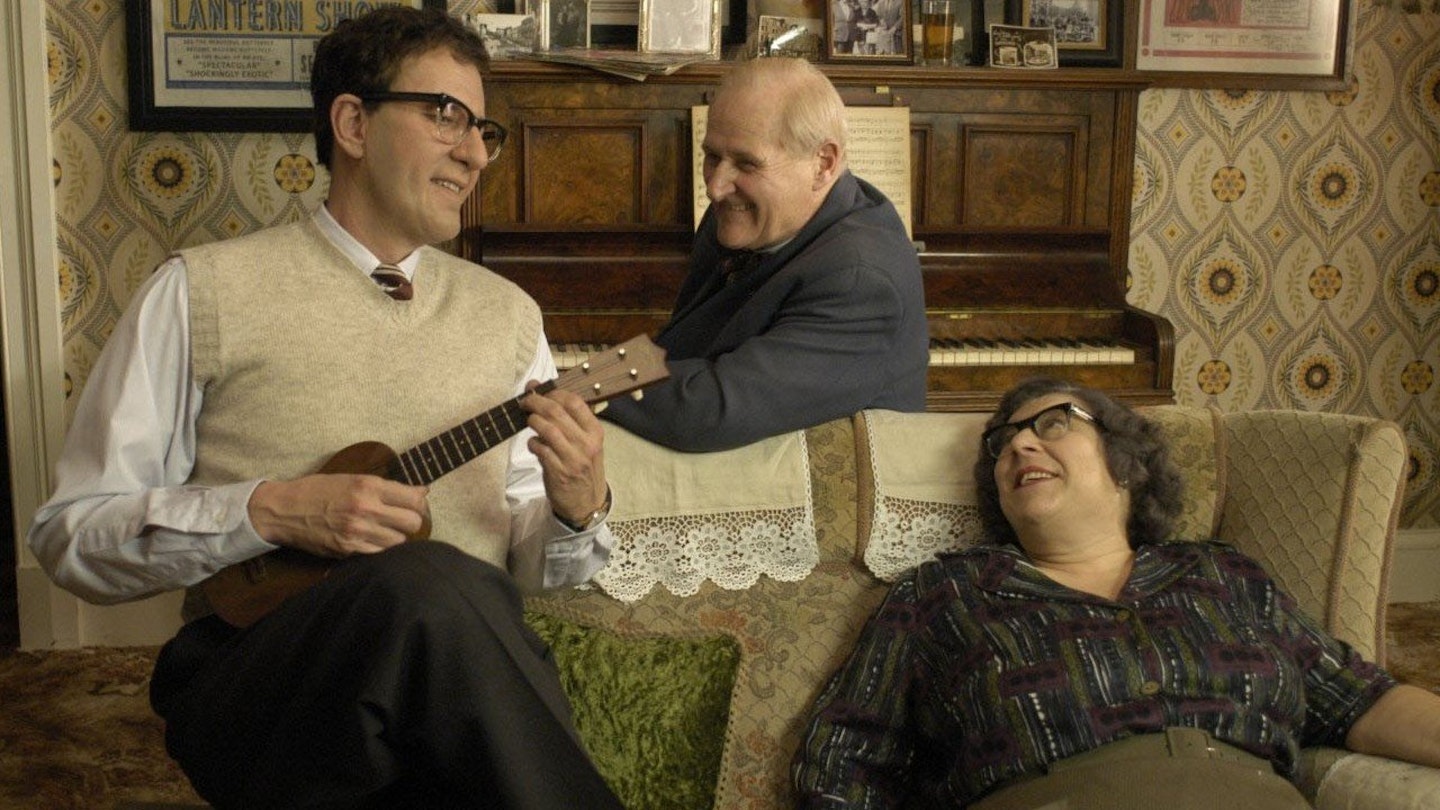A single question burns throughout this biopic of the man best-loved as the bumbling Inspector Clouseau: who the hell was Peter Sellers? It's one, though, that remains unanswered come the fatal conclusion, primarily because it's unsure that even Peter Sellers knew who Peter Sellers was. Thankfully, though, Stephen Hopkins avoids subjecting us to any mask-stripping psychological detective work (he'd only end up pratfalling like Clouseau if he did); he's more concerned with exploring the question itself and how it affected those close to Sellers.
In so doing, we're treated to an engaging and consistently well-performed whistle-stop tour of Sellers' career - although, like most biopics, its episodic selectiveness often proves frustrating. For example, there's little which reveals the man's vaudeville childhood, nothing about his experiences during World War II, and we only get to meet two of his four wives (Emily Watson as knowing first spouse Anne, Charlize Theron as Swedish trophy Britt Ekland). Perhaps the script would have done better to deal with a smaller timeframe in more detail, focusing, say, on Sellers' quest to make Being There.
Even so, Hopkins - an unlikely helmer for the project given his CV (Predator 2? Lost In Space?) - can claim success, mainly due to his casting of Geoffrey Rush in the title role. Despite the fact that, at 53, Rush is pretty much as old as Sellers ever got, he's utterly convincing, even while playing the actor during his younger years. The spoiled-brat tantrums, the tender fumblings and the marvellous flashes of genius are all captured by Rush like perfectly framed snapshots. His depiction of Clouseau's conception and unleashing on a bewildered air hostess is one of the highpoints; his tense interplay with Stanley Tucci's Kubrick is another.
For his part, Hopkins keeps the visuals snappy, whipping up a smoky, CG-assisted post-Blitz London, and cutting loose with his cosmic interpretation of Sellers' near-death experience. Yet he doesn't lose any emotional impact. Come the end, we may not know Sellers much better, but the fact that everyone he loves is reduced to an echoing voice on the phone leaves you with a sympathetic pang for a very flawed man.
